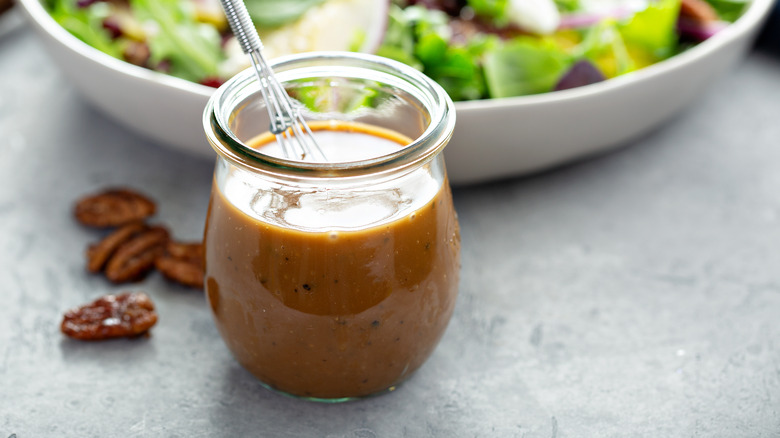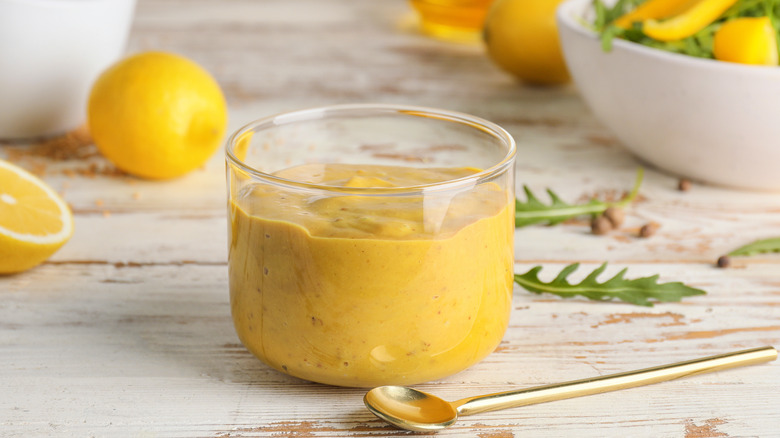What To Do If There's Too Much Salt In Your Salad Dressing
Salt is a mineral that can make or break the delicate flavors of your cooking in an instant. A dash of salt can enhance the essence of food, dial down the bitterness, and inject life into bland dishes. However, most of us have experienced the frustration that comes with destroying a dish because of an extra teaspoon or pinch of salt. We are prone to making many mistakes with salt, and mastering the art of adding the right amount into many foods can be super tricky.
While adding the appropriate amount of salt is a matter of personal taste, you need to be more attentive when it comes to salad dressing. After all, salt in salad dressing works as a unifier and brings balance to your flavorless, bland salad. Whether you're making homemade salad dressing or opting for a store-bought variety, it's best to look for a dressing with 115 milligrams per serving, which is about less than 5% of the daily recommended value of sodium (via Everyday Health).
But if by chance there's too much salt in your salad dressing, you don't have to resort to throwing the condiment out. There's a simple hack to reverse the damage of a salty dressing.
Tone down salty salad dressing with sweetness
If you've added so much salt to your dressing that the Dead Sea would have an inferiority complex, there's no need to fret. You only need to be a bit counterintuitive. In other words, you can temper an over-salted salad with something sweet. Although white or brown sugar works fine, Cooking Light recommends adding maple syrup, honey, or fruit juice to balance out your salad's taste.
If the salad dressing is still too salty and integrating something sweet isn't enough, you can add more of the dressing's other ingredients and create a larger batch of the condiment. And please don't add salt this time. If you "accidentally" add too much sweetness to your salad seasoning, there's an easy fix for that, too. One of the fixes is to add some salt to reduce the extra sweet taste. We wish we're making it up, but there could be no ending to this nightmare. So the best you can do is to be careful with whichever taste you're balancing.
Remember that salad dressing shouldn't feature one overpowering flavor. It also helps to understand what different types of salad dressings exist and when you should use them. Matching the right dressing with the right dish and tastes can create a mouthwatering meal.

